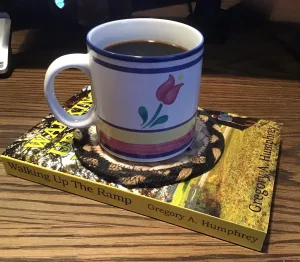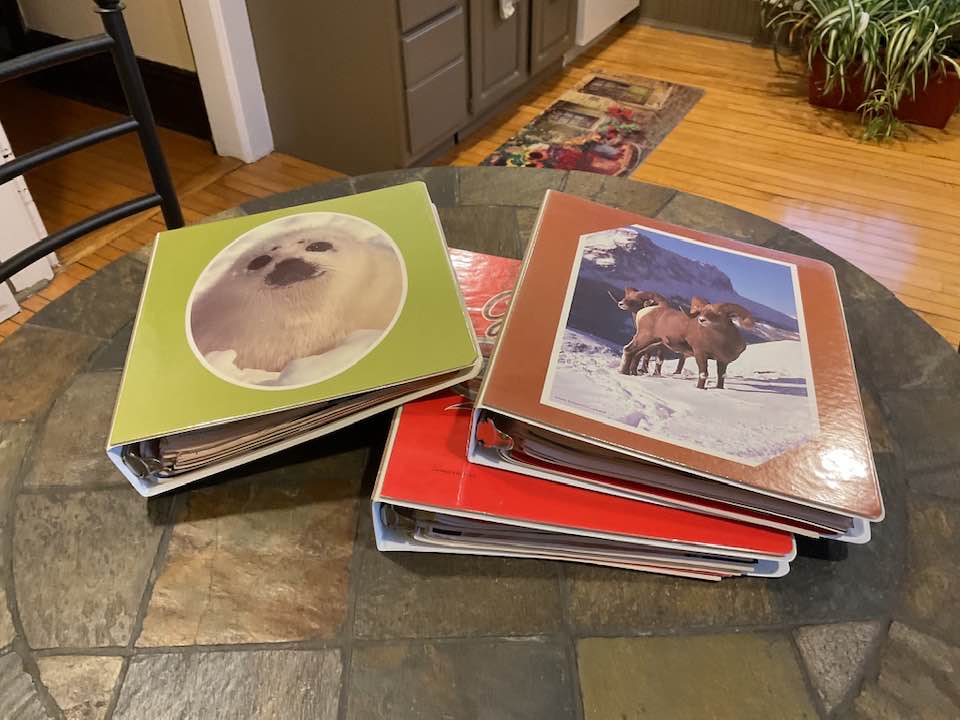It has been a tough week to read the newspaper obituary pages. One of the best writers and reporters I started reading in my teenage years and then onwards into adulthood was Richard Fineman. I had a subscription to Newsweek, a newsmagaine where he worked for nearly 30 years as a reporter and editor. I would pour over each edition and make notes or underline points I wanted to be easily able to locate. I pulled the binders for this post where I kept certain articles and pages. Fineman was a reporter’s reporter. There is, I feel, no higher praise.
Robert Fineman died at the age of 75 from cancer.
His work helped Newsweek stand out at a time that many people consider a golden age for newsmagazines. Alongside colleagues like Gloria Borger, Michael Isikoff and Evan Thomas, Mr. Fineman created a weekly report that blended breaking news with measured analysis and context, setting the tone for how people in Washington and the nation discussed them.
“He believed in the story, always attuned to where the political conversation was headed,” the historian Jon Meacham, who worked with Mr. Fineman at Newsweek, said in an email. “Howard was what was known as a master ‘violinist,’ the lead voice of the magazine responsible for writing the piece that served as the overture to everything that followed.”
After Mr. Fineman declared in 1999 that George W. Bush had all but captured the Republican presidential nomination over his closest rival, Senator John S. McCain of Arizona, the senator called Mr. Fineman a “gasbag” who had no understanding of the warp and weft of America outside Washington.
Mr. Fineman was unshaken. He called Mr. McCain immediately to patch things up, telling the senator that he was right about Beltway insularity — but also that he was no fan of the East Coast bubble either, and that he had already traveled thousands of miles covering the nascent campaign season.
As a conciliatory gesture, Mr. McCain sent Mr. Fineman a pair of red boxing gloves.
Today I read of a second blow to the journalism world when it was reported Christophe Deloire, whose nonpartisan organization to protect journalists. rescued dissidents from jail. and championed a diversity of viewpoints in the profession around the world, died in Paris. He was 53 and the cause of death was also cancer.
Mr. Deloire, who was himself a journalist and an author, lobbied publicly and labored behind the scenes to promote a free press in countries that muzzled journalists. He helped negotiate freedom for those who had been threatened with arrest, imprisoned or held hostage.Image
In 2023, Reporters Without Borders, known by its French initials R.S.F., coordinated the clandestine escape of Marina Ovsyannikova, a former Russian state TV journalist who incensed the Kremlin by storming a live news program in 2022 to denounce the invasion of Ukraine.
As leader and spokesman for the Paris-based R.S.F., Mr. Deloire oversaw a program to provide Ukrainian journalists with protective equipment and training after the Russian invasion began, and he established a Journalism Trust Initiative to certify the validity of news outlets as a way to help restore public confidence in the news media.
In his quest for pluralism in the profession, Mr. Deloire was a leading opponent of the appointment last summer of Geoffroy Lejeune, a far-right media mogul, as editor in chief of Le Journal du Dimanche, France’s only Sunday newspaper.
I grew up with radio news broadcasters that were part of the family, or so it seemed. The same was true for a group of print reporters. I understand with the internet and social media that type of journalism seems ancient, though it should not, for the sake of our democracy. Thomas Jefferson wrote, “Whenever the people are well-informed, they can be trusted with their own government.” Being well-informed is a vital component of a strong functioning democracy. Or republic. Be it our country or anywhere around the world. When we lose anchors of reporting the news or protecting the journalism profession it strikes deeper about what too many either take for granted, or never knew about in the frist place.
“As Walter Cronkite would say, that’s the way it is.” Howard Fineman





